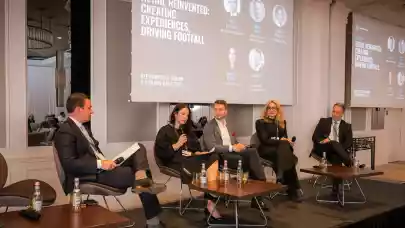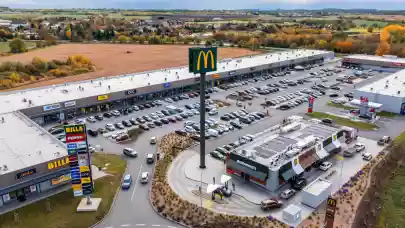
Once considered a purely transactional asset class, retail in CEE is rapidly evolving into a platform for experience, community, and brand identity. This shift was at the centre of the discussion at SEE Property Forum 2025, where industry leaders explored how shopping centres are adapting to changing consumer expectations, ESG requirements, and the growing demand for meaningful, multi-use spaces.
Moderator Silviu Stratulat framed the debate with the observation that “Retail, often called the mirror of urban culture, is continuously reshaped by technology, consumer behaviour, and the broader urban landscape. We are here to explore not just the challenges, but also the remarkable opportunities that arise when the retail sector adapts and rethinks its strategies.” Stratulat underscored the panel’s intent to probe both the positive and challenging trends facing the industry in Romania and the region at large.
For Mariana Stamate of Indotek Group, revitalising retail is first and foremost about creating memorable experiences that encourage visitors not merely to shop, but to linger. “By focusing our strategy entirely on experience—rebranding and extending GLA with new community spaces and curated F&B offerings—we transformed Plaza Muresh into an open, vibrant hub,” she emphasised. “We’ve seen not only a 10% increase in footfall, but also a richer engagement as families and communities truly make the shopping centre their own.”
Dominik Uhe represented a grocery-anchored perspective and described Kaufland International’s adaptability in the face of regionally diverse demands, highlighting the company’s twentieth anniversary in Romania. “Our core vision is to act as a footfall anchor, ensuring that grocery stores remain resilient and at the heart of community routines—whether that means tailoring store layouts or innovating our tenant mixes,” Uhe explained. “The challenge is to be exactly where our customers are, adapting to each market’s unique circumstances—be it the sprawling cities or rural regions—while embedding sustainability and operational resilience.”
Ramona Prouteau of CPI Romania described the multifaceted evolution of shopping centres, where entertainment, community, and sustainability are becoming as essential as retail itself. “The modern shopping centre is a complex ecosystem—it’s about offering entertainment, adapting the tenant mix to local needs, and ensuring that every space invites people to stay and connect,” Prouteau noted. “Our strategic focus has not only stabilised footfall even amidst economic fluctuations, but positioned our centres as resilient community destinations.”
Tamás Méri, Co-Founder of Access4you International, brought the spotlight to inclusivity and social responsibility, illustrating how accessible design benefits all stakeholders. “We believe accessibility must be woven into the very fabric of every retail project, not only as a moral imperative but as a tangible business advantage which fosters trust and loyalty,” stated Méri. “Our mission has shown that universal design lifts entire communities—by measuring, benchmarking, and guiding improvement, we help retail and infrastructure owners ensure that everyone, regardless of ability, feels genuinely welcome.”
As the discussion looked ahead to 2030, sustainability, digital transformation, and inclusivity emerged as defining features for retail’s next chapter. The panellists converged on the idea that successful retail destinations will be those that prioritise convenience, experience, and a strong sense of community. As Silviu Stratulat concluded, “Retail’s future requires bold adaptation—it’s about investing in relevance, forging emotional connections, and ensuring that every visitor leaves as an ambassador of the destination.” The message resonated clearly: reinvention is not just a necessity, but an ongoing opportunity.



